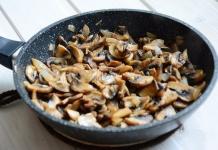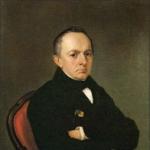Russian language
In days of doubt, in days of painful reflections on the fate of my homeland, you alone are my support and support, O great, powerful, truthful and free Russian language! Without you - how not to fall into despair at the sight of everything that happens at home? But one cannot believe that such a language was not given to a great people!
I.S. Turgenev
***
Take care of our language, our beautiful Russian language is a treasure, it is a property handed down to us by our predecessors! Treat this mighty weapon with respect; in the hands of the skilful, it is able to perform miracles.
I.S. Turgenev
***
The Russian language in skillful hands and experienced lips is beautiful, melodious, expressive, flexible, obedient, dexterous and roomy.
A.I. Kuprin
***
Language is the history of the people. Language is the way of civilization and culture. Therefore, the study and preservation of the Russian language is not an idle occupation with nothing to do, but an urgent need.
A. Kuprin
***
Russian language! For thousands of years the people have been creating this flexible, magnificent, inexhaustibly rich, intelligent poetic ... an instrument of their social life, their thoughts, their feelings, their hopes, their anger, their great future ... The people weaved an invisible web of the Russian language with a wondrous ligature: bright as a rainbow after the spring rain , as well-aimed as arrows, sincere as a song over a cradle, melodious ... The dense world, on which he threw the magic net of the word, submitted to him like a curbed horse.
A.N. Tolstoy
***
To treat language somehow means to think somehow: inaccurately, approximately, incorrectly.
A.N. Tolstoy
***
It's not scary to lie dead under the bullets,
It is not bitter to be homeless, -
And we will save you, Russian speech,
Great Russian word.
We will carry you free and clean,
And we will give grandchildren, and we will save from captivity,
Forever.
A.A. Akhmatova
***
There are no such sounds, colors, images and thoughts - complex and simple - for which there would be no exact expression in our language.
… You can do wonders with the Russian language!
K.G. Paustovsky
***
The Russian language is inexhaustibly rich, and everything is enriched with astonishing speed.
Maksim Gorky
***
You marvel at the treasures of our language: every sound is a gift; everything is granular, large, like pearls themselves, and really, another name is more precious than the thing itself.
N.V. Gogol
***
There is no word that would be so bold, brisk, so bursting out from under the very heart, so seething and vibrant, as aptly said Russian word.
N. Gogol
***
The Russian language is a language created for poetry, it is unusually rich and remarkable mainly for its subtlety of shades. - P.Merime
***
Language
Touch with reverence
To what you are armed
Create light and get drunk
Boundless Russian language
Airy, juicy, tasty,
Severe and gentle, many-sided,
Skilled in all melodies
Our amazing language.
It suits him and the term is narrow,
And an interjectional sigh, and a cry,
Be proud that you understand Russian,
Try to get deep.
It's funny and sad to hear, right,
Like Elochek and Fimok army
To overseas "ings", "shn" and "wow"
They want to press him, groaning.
Sergei Skachko
***
I want to write in Russian
Everything I think, feel and see
What I love and hate in life
While the pen is still in my hand.
Should I pass the steps of centuries,
Lusting for the whole truth about Russia?
How much can I lift
From the time that sleeps under a bushel of words?
But I am a historian. I will not turn back.
Not knowing the deadlines drawn for me,
Over the homeland, departed from the origins,
I will unfold the wings of the annals.
And navigating the ship of my soul
Through the reefs of unrest, violence and anarchy,
I dare to believe that I will take part
In the coming enlightenment of kings.
I want to tell the people of this land
How the ancestors sinned and created,
So that we all do not forget those lessons
And with God in our hearts we went into the future!
Igor Zhelnov
***
Our language is sweet, pure, and magnificent, and rich;
But sparingly we bring a good warehouse into it;
So that we do not disgrace him with ignorance,
We need to fix our entire warehouse at least a little.
A. Sumarokov
***
What a sweet poison
circles, sticks, dashes -
drive them left and right
under the rustle of dates on the calendar.
Each letter has a bell
desert world icon,
so that the heart - this shepherd of lines -
they were distinguished from each other.
When Cyrillic chickens
they will run like a paper meadow,
the soul is not so big a price
for this captivity, for this work.
Bring together the disparate parts
all thirty sounds of the dictionary
in one line - what happiness! -
and all thanks to you.
How glad is the silent hermit
palms of warm rain,
so is the poet: he sits, happy,
translating himself into poetry.
Evgeny Tishchenko
▫ `...took strict measures to control compliance with procedures during the USE, including investigations into the leakage of assignments on the eve of exams on the Internet, a system of public observers was launched` - that is why the USE has become so effective, and graduates demonstrate hitherto unseen knowledge ( (((USE, GIA, NIKO, VPR, etc., etc. We only track ...
▫ Lyubov Mikhailovna, colleagues at the courses shared. These are in addition to the existing ones.
▫
▫ Thank you very much!
▫ The new composition of the Government of the Russian Federation has been announced. The Ministry of Education was headed by Sergei Kravtsov, who until today was in charge of Rosobrnadzor. He replaced Olga Vasilyeva as minister. ʻIn accordance with clause d of Article 83 of the Constitution of the Russian Federation, appoint Kravtsov Sergey Sergeyevich as the Minister of Education of the Russian Federation`, the text of the decree of the President of the Russian Federation, published on the Kremlin portal, says. Sergey Kravtsov was born on March 17, 1974. In 1996 he graduated from the Moscow State Open Pedagogical University with a degree in Mathematics and Informatics, and in 2000 from the Moscow State Institute of International Relations (University) of the Ministry of Foreign Affairs of Russia with a degree in State and Municipal Administration with Knowledge of a Foreign Language. He is a Doctor of Pedagogical Sciences, Associate Professor, Acting State Counselor of the Russian Federation of the 3rd class. Over the course of five years, starting in 1997, Sergey Kravtsov went from junior researcher to head of the laboratory at the Institute of Education Management of the Russian Academy of Education (RAO). From 2002 to 2008, he worked at the Ministry of Education of the Russian Federation, the Federal Service for Supervision in Education and Science. In 2008-2009 he headed the Federal Testing Center, from 2009 to 2011 he headed the Institute of Education Management of the Russian Academy of Education. In April 2011, he headed the Department for Regional Development of the Russian Ministry of Education and Science, and since July 2012, the Department for Program Management and Competitive Procedures. On August 8, 2013, Sergey Kravtsov was appointed head of the Federal Service for Supervision in Education and Science. In 2017, the head of Rosobrnadzor was also the Deputy Minister of Education and Science of the Russian Federation. However, in 2018, after a change in the structure of the government, Rosobrnadzor left the ministry. Having become the head of Rosobrnadzor, Sergey Kravtsov took strict measures to control compliance with procedures during the USE, including investigations into the leakage of assignments on the eve of exams on the Internet, and a system of public observers was launched. Also under him, a unified system for assessing the quality of education was formed in Rosobrnadzor, including the Unified State Examination, GIA-9, NIKO, VPR and international studies. Sergey Kravtsov replaced Olga Vasilyeva as the Minister of Education, who headed the Russian Ministry of Education and Science in August 2016, and in May 2018 became the head of the Russian Ministry of Education. http://ug.ru/news/29769
The Russian language is rightfully considered one of the richest languages in the world. In our selection of quotes - statements, reflections of the great Russian classics of literature about the originality and greatness of the Russian language.
A.I. Kuprin
Russian language! For thousands of years the people have been creating this flexible, magnificent, inexhaustibly rich, intelligent poetic ... an instrument of their social life, their thoughts, their feelings, their hopes, their anger, their great future ... With wondrous ligature, the people wove an invisible web of the Russian language: bright, like a rainbow after the spring rain, well-aimed as arrows, sincere, like a song over a cradle, melodious ... The dense world, on which he threw the magic net of the word, submitted to him like a brimmed horse.
A.N. Tolstoy
Language is the history of the people. Language is the way of civilization and culture. Therefore, the study and preservation of the Russian language is not an idle occupation with nothing to do, but an urgent need.
A.I. Kuprin
In days of doubt, in days of painful reflections on the fate of my homeland, you alone are my support and support, O great, powerful, truthful and free Russian language! Without you - how not to fall into despair at the sight of everything that happens at home? But one cannot believe that such a language was not given to a great people!
I.S. Turgenev
The Russian language in skillful hands and experienced lips is beautiful, melodious, expressive, flexible, obedient, dexterous and roomy.
A.I. Kuprin
Take care of our language, our beautiful Russian language is a treasure, it is a property handed down to us by our predecessors! Treat this mighty weapon with respect; in the hands of the skilful, it is able to perform miracles.
I.S. Turgenev
There are no such sounds, colors, images and thoughts - complex and simple - for which there would be no exact expression in our language.
K.G. Paustovsky
The Russian language is inexhaustibly rich, and everything is enriched with astonishing speed.
Maksim Gorky
You marvel at the treasures of our language: every sound is a gift; everything is granular, large, like pearls themselves, and really, another name is more precious than the thing itself.
N.V. Gogol
There is no word that would be so bold, brisk, so bursting out from under the very heart, so seething and trembling vividly, as aptly said Russian word.
N.V. Gogol
Let there be honor and glory to our language, which, in its native richness, almost without any foreign admixture, flows like a proud majestic river - rustles and rumbles - and suddenly, if necessary, softens, murmurs in a gentle stream and sweetly flows into the soul, forming everything measures that consist only in the fall and rise of the human voice!
N.M. Karamzin
Our beautiful language, under the pen of unlearned and unskilful writers, is rapidly declining. Words are distorted. Grammar fluctuates. Spelling, this heraldry of the language, changes according to the arbitrariness of everyone and everyone.
A.S. Pushkin
Pushkin also spoke about punctuation marks. They exist to highlight the thought, to bring the words into the correct ratio and to give the phrase lightness and the right sound. Punctuation marks are like musical notation. They firmly hold the text and do not allow it to crumble.
K.G. Paustovsky
To use a foreign word when there is a Russian word equivalent to it means to offend both common sense and common taste.
V.G. Belinsky
Only having mastered the initial material, that is, the native language, in the possible perfection, we will be able to be in the same perfection.
learn a foreign language, but not before.
F.M. Dostoevsky
Ugly, dissonant words should be avoided. I do not like words with an abundance of hissing and whistling sounds, I avoid them.
A.P. Chekhov
Our Russian language, more than all the new ones, is perhaps capable of approaching the classical languages in its richness, strength, freedom of location, abundance of forms.
N.A. Dobrolyubov
The main character of our language lies in the extreme ease with which everything is expressed in it - abstract thoughts, inner lyrical feelings, “mouse running around life”, a cry of indignation, sparkling prank and amazing passion.
A.I. Herzen
Among the splendid qualities of our language there is one absolutely amazing and hardly noticeable. It consists in the fact that in its sound it is so diverse that it includes the sound of almost all languages of the world.
K.G. Paustovsky
The natural richness of the Russian language and speech is so great that without further ado, listening to the time with your heart, in close contact with a simple person and with a volume of Pushkin in your pocket, you can become an excellent writer.
MM. Prishvin
By the attitude of each person to his language, one can absolutely accurately judge not only his cultural level, but also his civic value.
K.G. Paustovsky
To deal with the language somehow means to think somehow: approximately, inaccurately, incorrectly.
A.N. Tolstoy
But what disgusting bureaucratic language! Proceeding from that position… on the one hand… on the other hand, all this without any need. “Nevertheless” and “to the extent that” the officials composed. I read and spit.
A.P. Chekhov
The greatest wealth of a people is its language! For thousands of years countless treasures of human thought and experience have accumulated and live forever in the word.
M.A. Sholokhov
The Russian language is quite rich, however, it has its drawbacks, and one of them is hissing sound combinations: -vosh, -vosh, -vosh, -shcha, -shch. On the first page of your story, “lice” crawl in large numbers: those who worked, those who spoke, those who arrived. It is quite possible to do without insects.
Maksim Gorky
You can do wonders with the Russian language!
Research objectives: To get acquainted with the grammatical characteristics of particles, their semantics, their role in the organization of sentences and text. To comprehend and evaluate the accumulated speech experience, to identify the role of particles in artistic and colloquial speech, to clarify the shades of particle meanings.

Stage 1, theoretical Particles - a category of functional words that give additional semantic or emotional shades to sentences and individual words. The following are distinguished by meaning: 1) particles expressing various semantic shades of words in speech: indefinite: restrictive: only, only, almost, only, etc .; demonstrative: out, here, this; amplifying: even, same, and, too, etc .;

Stage 1, theoretical interrogative interrogative: is it, is it, really, clarifying: exactly, exactly, exactly negative: not, nor; modal (expressing the attitude of the speaker to the reported): maybe, where, hardly, hardly, tea, etc .; denoting the transmission of someone else's speech: de, say, they say; 2) particles that introduce emotionally expressive shades (exclamatory) into speech: after all, how, what for, here's another, etc .; 3) shaping particles: would, it happened, let, yes, let, ka.

Stage 2, expert-theoretical Analysis of the text by N.I. Sladkova "Tell me what you eat and I'll tell you who you are" - Guess who I am. I eat bugs and ants and live on a Christmas tree. - Is it a woodpecker? - No, I didn't guess! I also eat wasps and bumblebees. - So you are a honey buzzard. - How, honey! I also eat caterpillars and larvae. “Just the thrushes love caterpillars and larvae. - Indeed, thrushes, not me. After all, I gnaw the antlers shed by moose. - Well, then you must be a wood mouse. - Here's another mouse! Sometimes I even eat mice myself.

Examining the text, we will complete the tasks and answer the questions: Indicate in the text all the particles or combinations with them, their ranks by value. Let's think: do particles connect parts of a sentence, its members or whole sentences? What style is the use of the particle in this context? Why are there many particles in conversational text?


We continue our observations: we find out the meanings of the particles It turns out that the particles can “travel” through the sentence, but their place is still strictly fixed: each particle is used by the speaker or writer before the word or phrase that is important for the author. We conduct an experiment: we include particles belonging to different categories in the sentence I am a champion. Possible options: I'm not a champion. I am the champion. Am I a champion?! Even I am a champion. I'm still a champion.

Stage 3. Linguistic experiment ... birds have funny names ... you will believe that there is a toadstool bird. Toadstool... there are horns and a curler. Or... spinning top... Quite nice names: oatmeal, millet, linnet and... lentils. And... a bad name for a siskin or a tap dance.... the names will be incomprehensible for us: greenfinch, bluetail, white-fronted?... Names-nicknames are the best! Exercise. Let's learn the "wonderful tie": we will supplement the text with the necessary particles (exactly, after all, after all, perhaps, but, even, really, and even, hardly, simply). Let's draw a conclusion about the role of particles in the text.


The cruel Roman commander, having captured the Thracian warriors, made them gladiators. Two of them - Sevtus and Teresa - handsome young men, friends - he ordered to fight each other to the death, promising the winner freedom and the hand of his daughter. But the bloody battle still did not take place. How could young men betray friendship? And they stuck their swords into the ground. Then the enraged Romans killed them. And now, in place of the swords stuck into the ground by the gladiators, beautiful gladioli blossomed. Since then, this flower has been considered a symbol of friendship, loyalty and memory.

Curious information Many Russian writers and poets used particles in their work. For example, A.S. Pushkin used the particle about 1000 times. And the particle even sounded from the poet more than 300 times. For example, “But even in these years Tatyana did not take dolls in her hands.” And who does not know the famous "Already the sky was breathing in autumn ..."?




Resources: Copyright © BSMP "ELEKS-Alpha" Encyclopedia for children. Volume 10. Linguistics. Russian language; (Edited by M. Aksenova et al.). - M., 2005 State final certification of grade 9 graduates in a new form. Russian language. 2009\FIPI.-M., 2009 O.V. Zarubina. Preparation for writing an essay on a linguistic topic. RYASH9 2009

(1) In peaceful years, a person, in contentment and happiness, like a bird bathing in the sky, can fly far from the nest and even seem to him as if the whole world is his homeland. (2) Another person, embittered by bitter need, will say: “What are you telling me: homeland! (3) What good did I see from her that she gave me?
(4) But a common misfortune approached. (5) The enemy is devastating our land and wants to call all our eternal things his own. (6) Then both the happy and the unfortunate gather at their nest. (7) Even the one who would like to hide, like a cricket, in a dark crack and whistle there until better times, and he understands that now it is impossible to escape alone.
(8) Our nest, the homeland has prevailed over all our feelings. (9) And everything that we see around, which before, perhaps, we did not notice, did not appreciate, like smoke smelling of rye bread from a snow-covered hut, is now piercingly dear to us.
(10) Motherland is the movement of the people across their land from the depths of centuries to the desired future, in which they believe and which they create with their own hands for themselves and their generations. (11) This is an ever-dying and ever-born stream of people carrying their language, their spiritual and material culture and unshakable faith in the legitimacy and inviolability of their place on earth.
(12) The land of ottich and dedich are those banks of full-flowing rivers and forest glades where our ancestor came to live forever. (13) He was strong and bearded, in a long linen shirt, salty on his shoulder blades, smart and unhurried, like all the dense nature around him. (14) The ancestor could see a lot, looking around from under the palm of his hand ... (15) “Nothing, we can do it,” he said and began to live. (16) The graves of fathers and grandfathers grew and multiplied behind him, his people grew and multiplied. (17) With marvelous ligature, he weaved an invisible web of the Russian language; bright as a rainbow following a spring downpour, as accurate as arrows, sincere as a song over a cradle, melodious and rich. (18) He called all things by their names and sang all that he saw and what he thought, and sang his work. (19) And the dense world, on which he threw the magic net of the word, submitted to him like a brimmed horse, and became his property, and for his descendants became a homeland - the land of Otich and Dedich.
(20) The Russian people created a huge oral literature: wise proverbs and cunning riddles, funny and sad ritual songs, solemn epics, heroic, magical, everyday and funny tales. (21) It is in vain to think that this literature was only the fruit of popular leisure. (22) She was the dignity and mind of the people. (23) She formed and strengthened his moral character, was his historical memory, the festive clothes of his soul, and filled with deep content his entire measured life, flowing according to the customs and rituals associated with his work, nature and veneration of fathers and grandfathers.
(24) No wonder the ancestor wove the magic web of the Russian language: the whole wide, creative, passionate, seeking soul of the Russian people was reflected in our art of the 19th century. (25) It became global and in many ways led the art of Europe and America.
(26) Russian science has given the world great chemists, physicists and mathematicians.
(27) The first steam engine was invented in Russia, as well as the voltaic arc, wireless telegraph and much more.
(28) Our ancestor, probably, distinguished in the distance of centuries these affairs of his people and then said to this: “Nothing, we can do it ...” (29) Each of us is responsible for our Motherland, for preserving the heritage of our people, strong, freedom-loving, truth-loving, intelligent and not offended by talent.
(According to A. N. Tolstoy)
Show full text
Motherland - how much majestic, powerful and beautiful is in this word. Do we love her the way she loves us? In the text proposed for analysis, Alexei Nikolaevich Tolstoy poses the problem of people's responsibility for the fate of their homeland.
The author says that “in peaceful years, a person in contentment and happiness” does not attach importance to his native land. However, as soon as trouble approaches, all people, regardless of their position, unite for his protection. The writer comes to the conclusion that "Motherland is the movement of the people across their land from the depths of centuries to the desired future."
I fully agree with the opinion of Alexei Nikolaevich Tolstoy. Indeed, people should always protect their country and do everything possible for her bright future.
The validity of the author's position is confirmed by the experience of Russian literature. So, for example, in Alexander Tvardovsky's poem "Vasily Terkin", the main character, who has absorbed all the best qualities of soldiers, defends his homeland. He
Criteria
- 1 of 1 K1 Statement of source text problems
- 3 of 3 K2




















